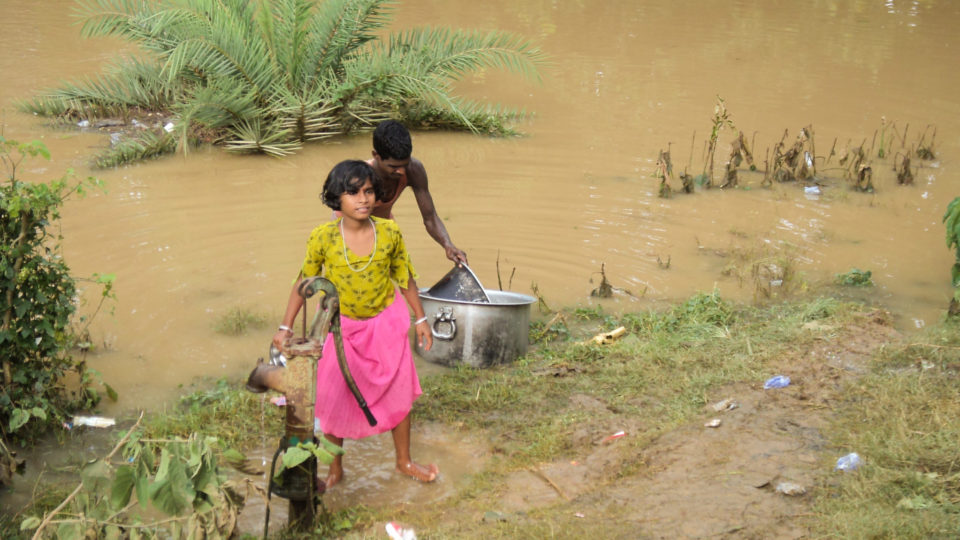The status of water supply, sanitation and hygiene have significant bearings on human health. Development agenda within South Asia region is increasingly prioritising investments in WASH. This is a welcome trend, as improved WASH services bring about tangible change in community health and livelihoods. However, often the role of wetlands as a source of water and sink of wastes is not factored into the design of WASH interventions. We work to bridge this gap as a contribution to the goal of ensuring sustainable WASH for all.
Wetlands in South Asia have traditionally been the base of livelihoods of communities, depending on the ecosystem resources for livelihoods and well-being. The status of water supply and sanitation within the basins and coastal zones in which wetlands are situated have a significant bearing on ecosystem functioning. Wetlands are the source of water, which drives wet sanitation, and at several occasions, ultimate sinks of waste. Sustainability of WASH interventions requires building in interventions which can address WASH – wetlands interlinkages.
We work with WASH partners for increased recognition of water security as a basis for planning and implementation of WASH projects and interventions. We ultimately aim at healthy wetlands as the basis of environmentally sustainable water and sanitation solutions.
Under the strategic partnership ‘Watershed – empowering citizens’ aimed to facilitate improvements in governance and management of WASH services (Water, Sanitation and Hygiene services and water sources on which such services depend) for all, our partners mark their project progress on the Really Simple Reporting platform. This is helping our partners in India (Bihar and Odisha) and Bangladesh (Barisal Division) monitor progress, easily communicate key activities and report the project in real time.

